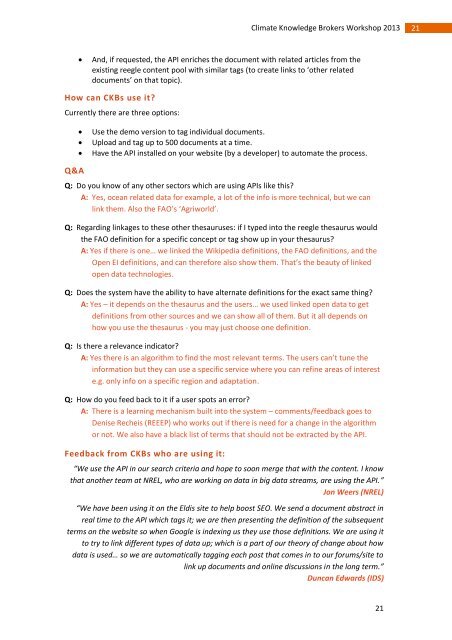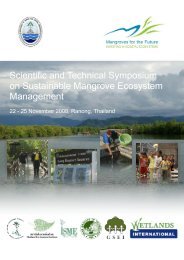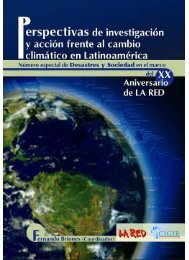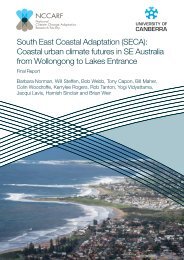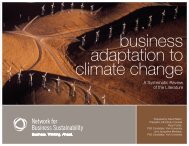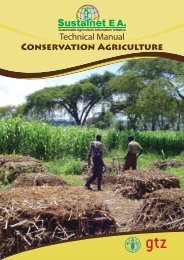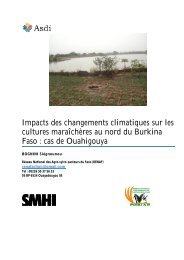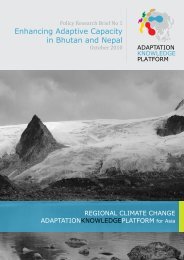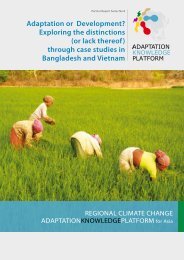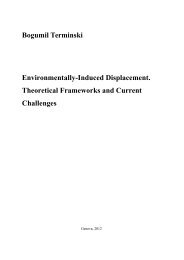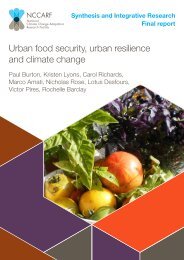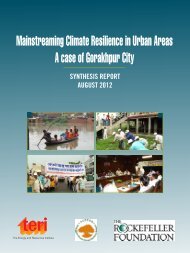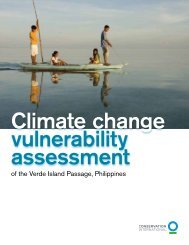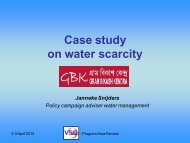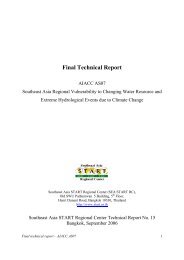You also want an ePaper? Increase the reach of your titles
YUMPU automatically turns print PDFs into web optimized ePapers that Google loves.
Climate Knowledge Brokers <strong>Workshop</strong> 2013<br />
21<br />
<br />
And, if requested, the API enriches the document with related articles from the<br />
existing reegle content pool with similar tags (to create links to ‘other related<br />
documents’ on that topic).<br />
How can CKBs use it<br />
Currently there are three options:<br />
<br />
<br />
<br />
Use the demo version to tag individual documents.<br />
Upload and tag up to 500 documents at a time.<br />
Have the API installed on your website (by a developer) to automate the process.<br />
Q&A<br />
Q: Do you know of any other sectors which are using APIs like this<br />
A: Yes, ocean related data for example, a lot of the info is more technical, but we can<br />
link them. Also the FAO’s ‘Agriworld’.<br />
Q: Regarding linkages to these other thesauruses: if I typed into the reegle thesaurus would<br />
the FAO definition for a specific concept or tag show up in your thesaurus<br />
A: Yes if there is one… we linked the Wikipedia definitions, the FAO definitions, and the<br />
Open EI definitions, and can therefore also show them. That’s the beauty of linked<br />
open data technologies.<br />
Q: Does the system have the ability to have alternate definitions for the exact same thing<br />
A: Yes – it depends on the thesaurus and the users… we used linked open data to get<br />
definitions from other sources and we can show all of them. But it all depends on<br />
how you use the thesaurus - you may just choose one definition.<br />
Q: Is there a relevance indicator<br />
A: Yes there is an algorithm to find the most relevant terms. The users can’t tune the<br />
information but they can use a specific service where you can refine areas of interest<br />
e.g. only info on a specific region and adaptation.<br />
Q: How do you feed back to it if a user spots an error<br />
A: There is a learning mechanism built into the system – comments/feedback goes to<br />
Denise Recheis (REEEP) who works out if there is need for a change in the algorithm<br />
or not. We also have a black list of terms that should not be extracted by the API.<br />
Feedback from CKBs who are using it:<br />
“We use the API in our search criteria and hope to soon merge that with the content. I know<br />
that another team at NREL, who are working on data in big data streams, are using the API.”<br />
Jon Weers (NREL)<br />
“We have been using it on the Eldis site to help boost SEO. We send a document abstract in<br />
real time to the API which tags it; we are then presenting the definition of the subsequent<br />
terms on the website so when Google is indexing us they use those definitions. We are using it<br />
to try to link different types of data up; which is a part of our theory of change about how<br />
data is used… so we are automatically tagging each post that comes in to our forums/site to<br />
link up documents and online discussions in the long term.”<br />
Duncan Edwards (IDS)<br />
21


